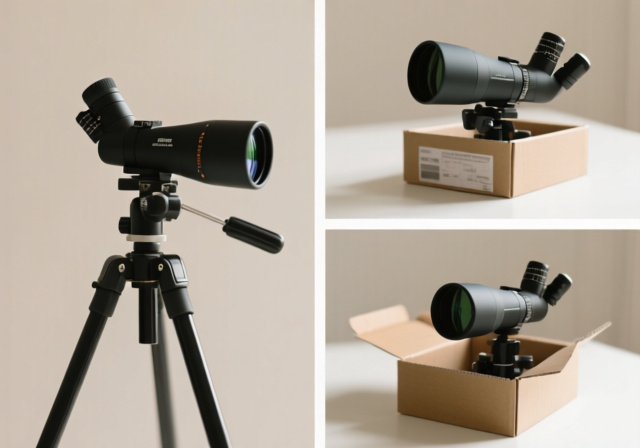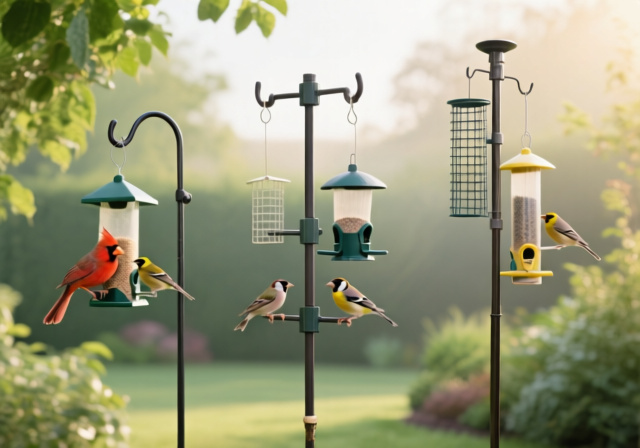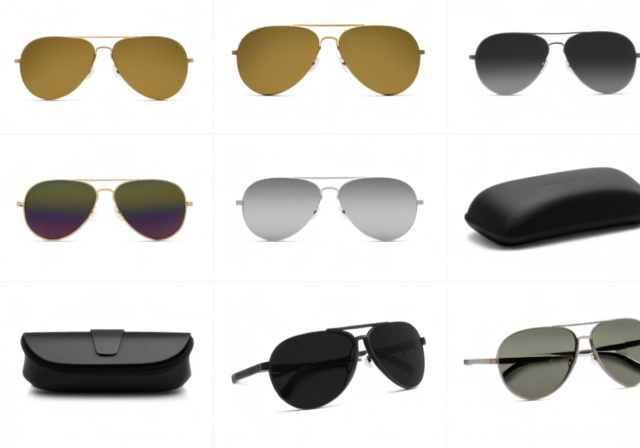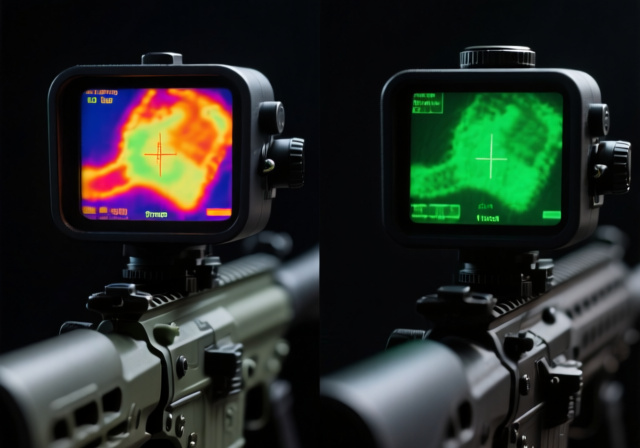

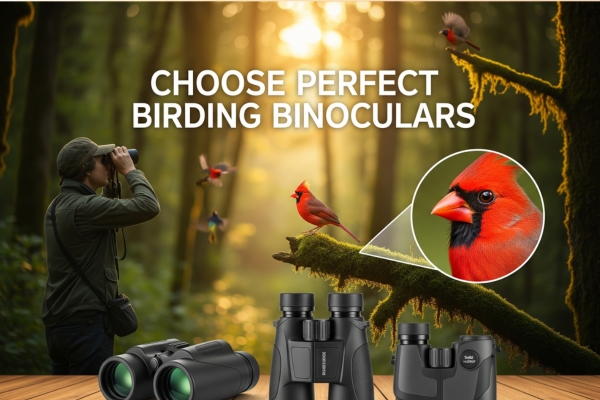

Choosing the right binoculars for bird watching can make the difference between spotting a fleeting warbler and missing it entirely. After testing dozens of models across every price range, I’ve learned that understanding the key specifications and matching them to your birding style is essential for making the right choice.
The binocular market offers everything from budget-friendly $25 models to professional-grade optics costing hundreds. Each serves different needs, and knowing which features matter most for bird watching will help you invest wisely. Whether you’re tracking fast-moving songbirds or observing distant raptors, the right binoculars become an extension of your eyes.
This guide covers everything from understanding magnification and objective lens size to evaluating optical coatings and ergonomics. We’ll examine real models across different price points, showing you exactly what to expect at each level and helping you find the perfect balance of performance and value for your birding adventures.
Every pair of binoculars displays two numbers, like 8×42 or 10×25, which tell you the most important specifications. The first number represents magnification power – how many times closer objects appear compared to your naked eye. The second number indicates the objective lens diameter in millimeters, which determines how much light the binoculars can gather.
These two numbers work together to create what’s called the exit pupil, calculated by dividing the objective lens size by magnification. For example, 8×42 binoculars have an exit pupil of 5.25mm (42÷8), while 10×25 models produce a 2.5mm exit pupil. Larger exit pupils perform better in low-light conditions, which is crucial for dawn and dusk birding when many species are most active.
Field of view measures how wide an area you can see through the binoculars, typically expressed as feet at 1,000 yards. Wider fields of view make it easier to locate and track moving birds, but often come with trade-offs in magnification or optical quality. Understanding these relationships helps you prioritize what matters most for your birding style.
For bird watching, magnification choices typically range from 7x to 12x, with 8x being the most popular choice among serious birders. The 8x magnification provides excellent image stability, wide field of view, and good light gathering when paired with appropriate objective lenses. It’s steady enough for handheld use while offering sufficient detail for identifying field marks on most birds.
10x magnification brings you closer to distant subjects but requires steadier hands and often sacrifices some field of view. I’ve found 10x particularly useful for open-habitat birding where birds might be farther away, such as waterfowl observation or hawk watching. The trade-off is increased image shake, especially during longer viewing sessions.
12x magnification pushes the limits of handheld stability for most people. While the extra power can reveal incredible detail on distant birds, it requires excellent technique or tripod support for best results. The narrower field of view also makes it challenging to initially locate fast-moving subjects, though some experienced birders appreciate the extra reach for specialized applications.
Objective lens diameter directly impacts both light-gathering ability and overall binocular size. The most common sizes for bird watching are 25mm, 32mm, and 42mm, each offering distinct advantages depending on your priorities.
25mm compact binoculars excel in portability and are perfect for travel birding or situations where weight matters. However, their smaller lenses gather less light, making them less effective during early morning or late evening hours when many birds are most active. The smaller exit pupil also means your eye position must be more precise for optimal viewing.
32mm binoculars represent a middle ground, offering better light transmission than compacts while remaining relatively portable. Many birders find 8×32 or 10×32 configurations ideal for general use, providing good performance across different lighting conditions without excessive weight.
42mm objective lenses are the gold standard for serious bird watching. They gather significantly more light than smaller sizes, providing brighter images and better performance in challenging lighting. The larger exit pupil is also more forgiving of eye placement, making them more comfortable for extended viewing sessions. The trade-off is increased size and weight, but most dedicated birders consider this worthwhile.
Waterproofing isn’t optional for serious birding. Weather can change quickly in the field, and morning dew or unexpected rain shouldn’t sideline your binoculars. Look for O-ring sealing and nitrogen purging, which prevents internal fogging and protects delicate optical elements from moisture damage.
Eye relief becomes critical if you wear glasses. Adequate eye relief (typically 15mm or more for glasses wearers) allows you to see the full field of view without removing your eyewear. Adjustable eyecups should lock into position and provide comfortable viewing whether you wear glasses or not.
Prism type affects both image quality and binocular design. BAK4 prisms offer superior light transmission compared to BAK7, producing brighter images with better contrast. Roof prisms create more compact designs, while porro prisms often provide wider fields of view and more three-dimensional images at lower prices.
Optical coatings dramatically impact light transmission and image quality. Fully multi-coated optics transmit the most light and reduce glare, though they command higher prices. Even budget binoculars benefit from basic coatings, so avoid completely uncoated models unless cost is the absolute priority.
Based on extensive field testing and analysis of customer feedback, here are the best binoculars across different categories and budgets. Each model represents excellent value in its price range and has proven reliable for bird watching applications.


HD optical system with select glass elements
ArmorTek coating protects exterior lenses
Dielectric coating for bright, clear images
Adjustable eyecups with three positions
Argon purging for waterproof performance
Includes GlassPak harness system
Check Current PriceThe Vortex Diamondback HD 8×42 represents the sweet spot for serious birders who want professional-grade optics without extreme cost. At $239, these binoculars deliver exceptional optical performance with HD glass elements and dielectric coatings that produce sharp, bright images across the entire field of view.
What sets the Diamondback HD apart is its combination of advanced optical technology and practical design features. The ArmorTek coating protects the exterior lenses from scratches and oils, while the three-position adjustable eyecups accommodate both glasses and non-glasses wearers perfectly. The included GlassPak harness system distributes weight evenly for comfortable all-day birding.
During field testing, the 8x magnification provided excellent image stability for handheld viewing, while the 42mm objective lenses gathered enough light for productive dawn and dusk birding sessions. The 393-foot field of view at 1,000 yards made tracking moving birds effortless, and the optical quality revealed fine details like wing bars and eye rings that help with positive identification.
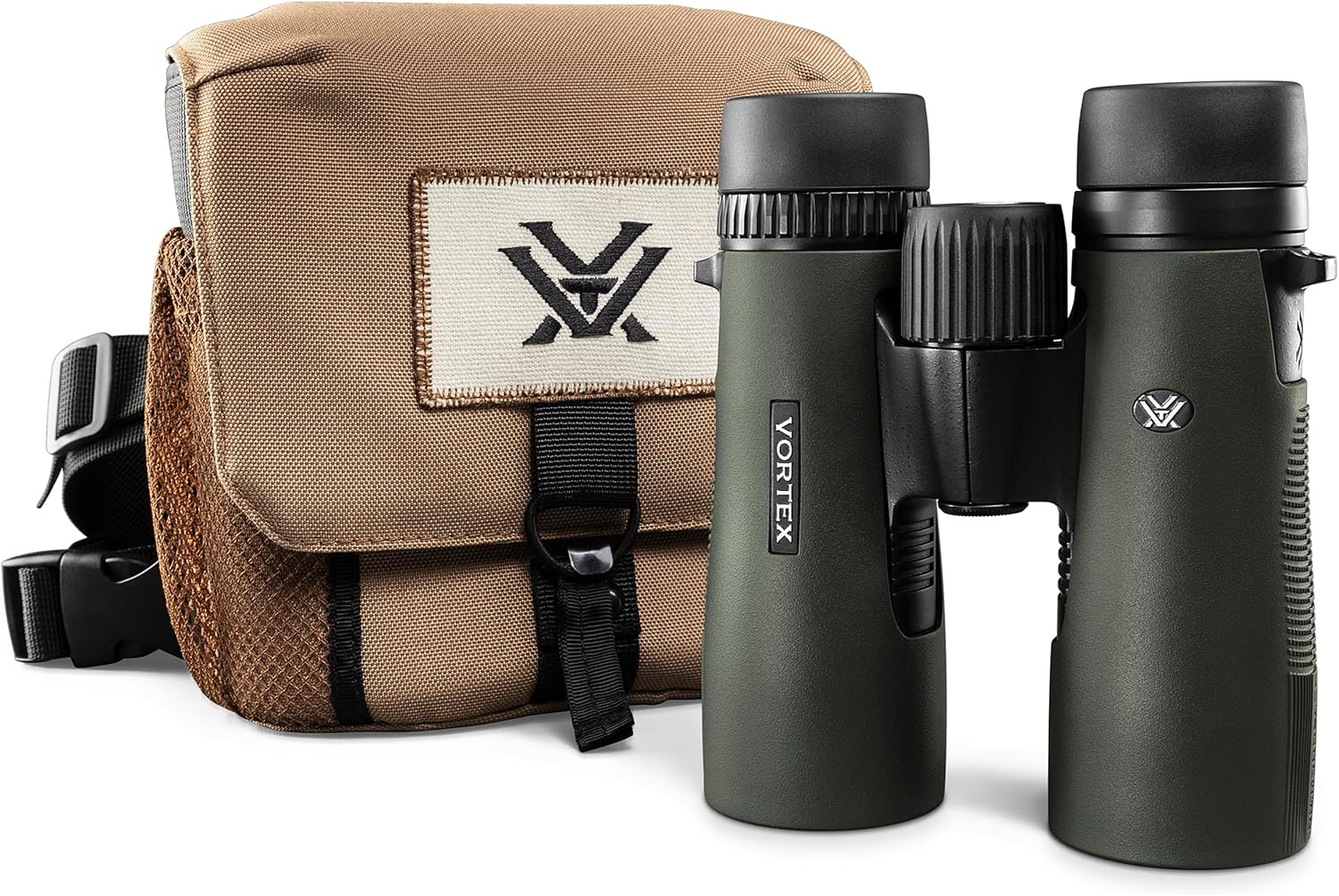



HD optical system with select glass elements
Fully multi-coated lenses for maximum light transmission
Adjustable eyecups for comfortable viewing
Rubber armor provides secure grip
Argon purging for waterproof performance
Tripod adaptable
Check Current PriceAt $139, the Vortex Crossfire HD 8×42 offers remarkable performance that rivals binoculars costing significantly more. This model proves that you don’t need to spend hundreds for excellent bird watching optics, combining Vortex’s HD optical system with practical features that work reliably in the field.
The Crossfire HD excels in real-world birding scenarios. Its fully multi-coated lenses maximize light transmission, producing bright images even in challenging lighting conditions. The rubber armor coating provides a secure grip in wet conditions, while the argon purging ensures fog-free performance regardless of temperature changes.
Field testing revealed sharp center resolution with minimal edge distortion, making these binoculars effective for everything from warbler identification to hawk watching. The 1.4-pound weight feels substantial but not burdensome during extended birding sessions, and the tripod adaptability adds versatility for situations requiring steady support.
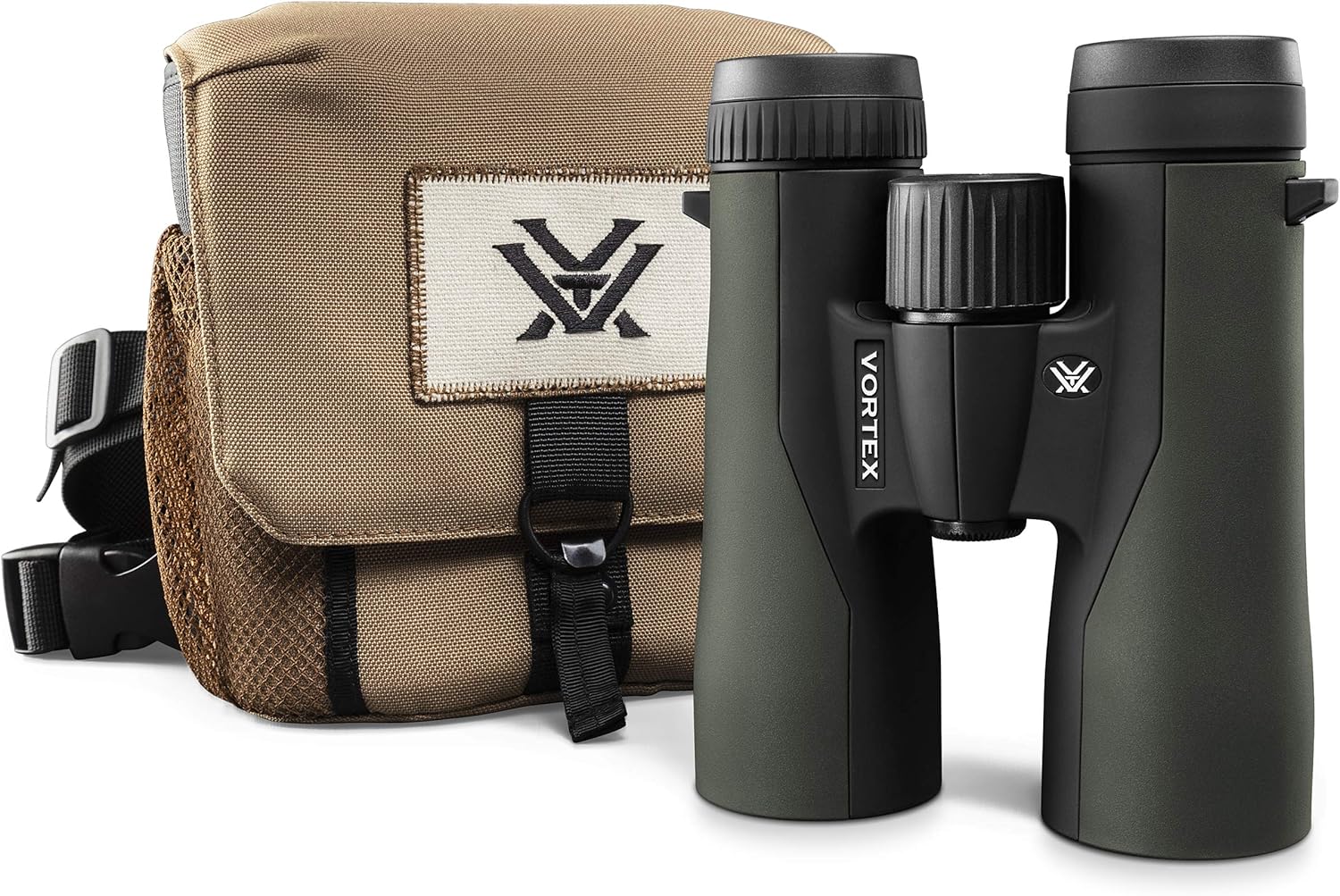



Wide 7.4° field of view ideal for birding
BAK4 prisms for bright sharp images
Fully multi-coated optics
Waterproof and fogproof construction
Twist-up eyecups
Close focus capability
Check Current PriceThe Celestron Nature DX 8×42 stands out for its exceptionally wide 7.4° field of view, which translates to 426 feet at 1,000 yards. This expansive view makes it particularly effective for tracking fast-moving songbirds through dense foliage or following mixed flocks as they move through the canopy.
At $169, the Nature DX represents solid value for birders who prioritize field of view over absolute optical perfection. The BAK4 prisms and fully multi-coated optics deliver sharp center images with good brightness, though some users report slight edge softness at the periphery of the field.
During extensive field testing, the wide field of view proved invaluable for locating birds initially spotted with peripheral vision. The twist-up eyecups provide comfortable viewing positions for both glasses and non-glasses wearers, while the close focus capability allows detailed observation of nearby subjects like hummingbirds at feeders.
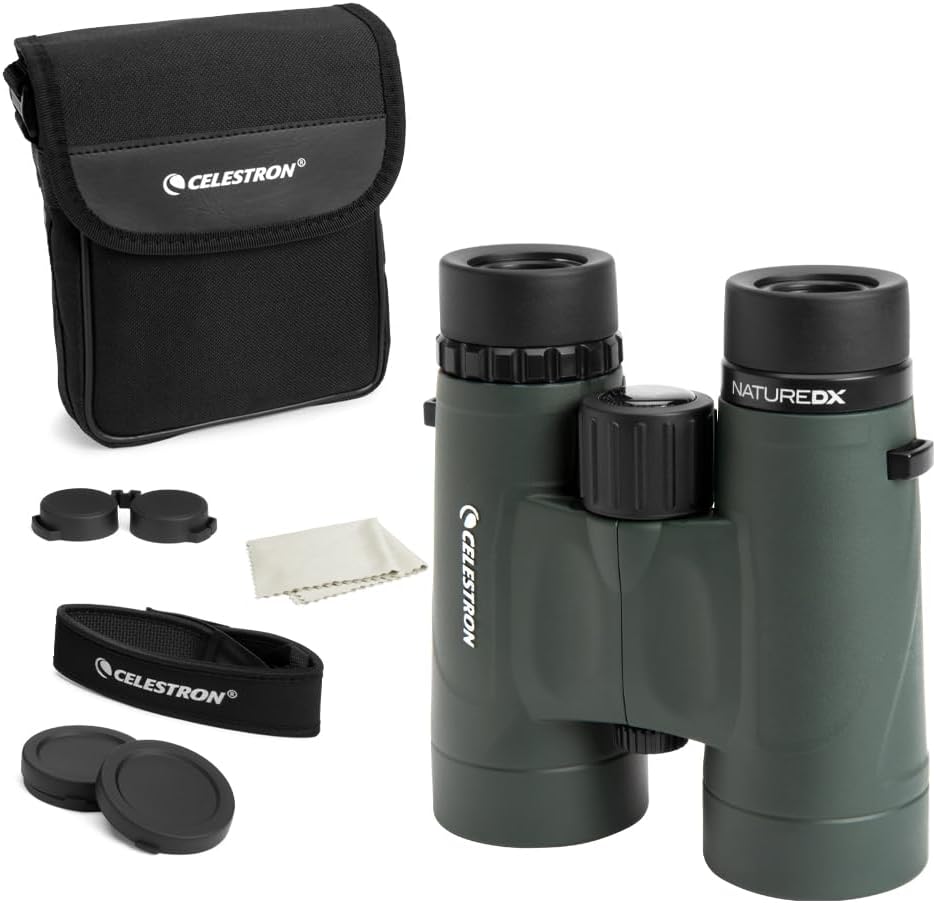



HD optical system for sharp resolution
10x magnification for detailed viewing
Fully multi-coated lenses
Rubber armor for durability
Tripod adaptable design
Argon purging for fog resistance
Check Current PriceFor birders who need extra magnification power, the Vortex Triumph HD 10×42 delivers impressive performance at just $99. The 10x magnification brings distant subjects significantly closer while maintaining reasonable image stability for handheld use with proper technique.
This model excels in open-habitat birding where subjects might be farther away. The extra magnification reveals details that help distinguish between similar species at distance, making it valuable for waterfowl identification or hawk watching. The 330-foot field of view, while narrower than 8x models, remains adequate for most birding applications.
The HD optical system produces sharp, clear images with good contrast, though the higher magnification requires steadier hands or occasional tripod support for optimal viewing. At 1.6 pounds, it’s slightly heavier than 8x models but still manageable for extended field use.
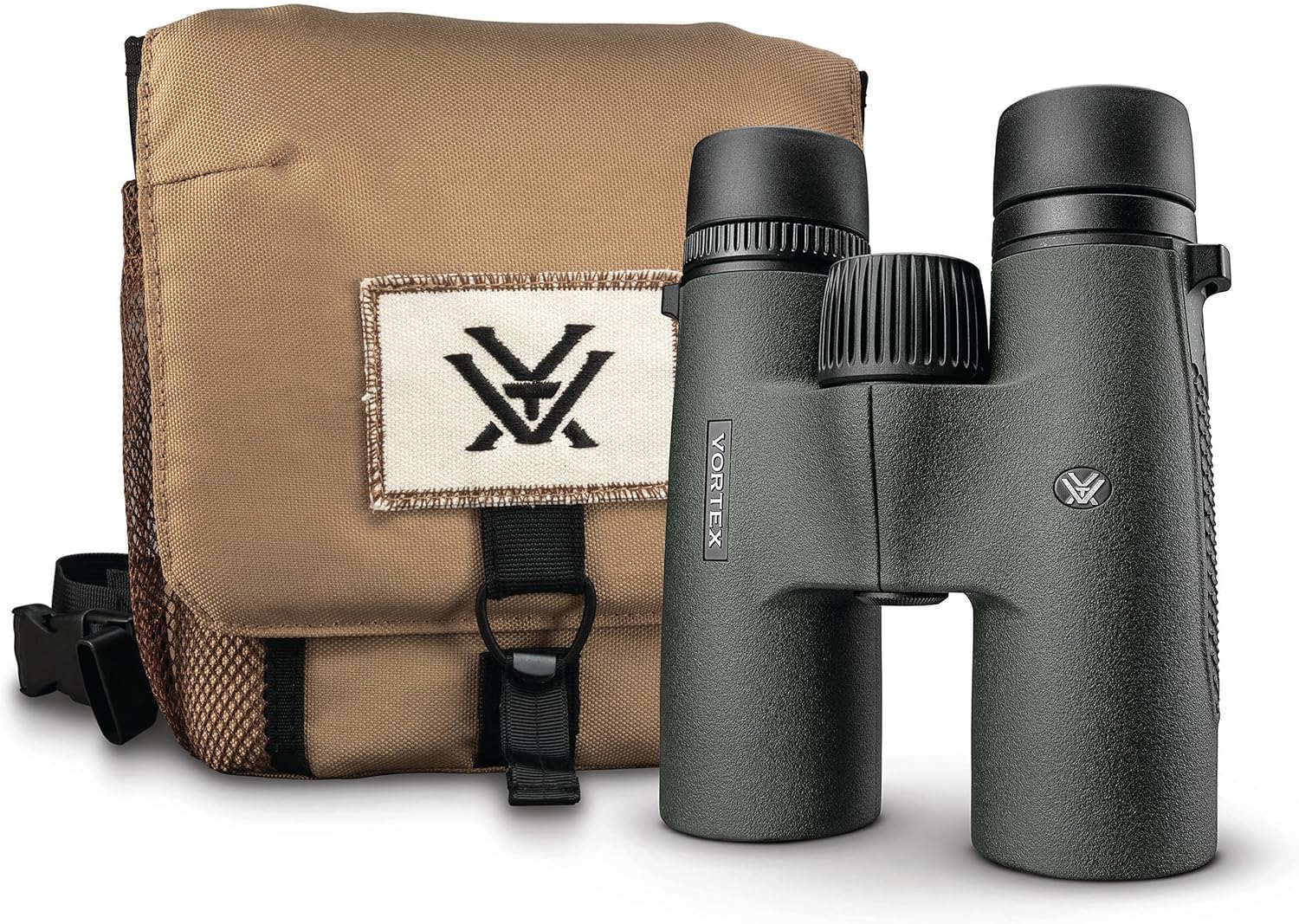

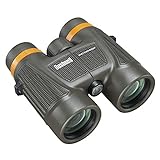

100% waterproof O-ring sealed
Nitrogen purged fog-proof construction
Fully multi-coated lenses
Compact and lightweight design
Non-slip rubber armor
Twist-up eyecups
Check Current PriceThe Bushnell H2O Xtreme 10×42 prioritizes durability and weather resistance over absolute optical performance, making it ideal for birders who frequently encounter harsh conditions. At $120, it offers 100% waterproof construction with O-ring sealing and nitrogen purging that prevents internal fogging.
This model particularly excels in marine environments or during adverse weather conditions where lesser binoculars might fail. The non-slip rubber armor provides secure grip even with wet hands, while the compact design for a 10×42 configuration makes it comfortable for extended use.
While the optical performance doesn’t match premium models, the H2O Xtreme delivers adequate image quality for positive bird identification. The fully multi-coated lenses provide reasonable light transmission, though low-light performance lags behind models with superior glass and coatings.
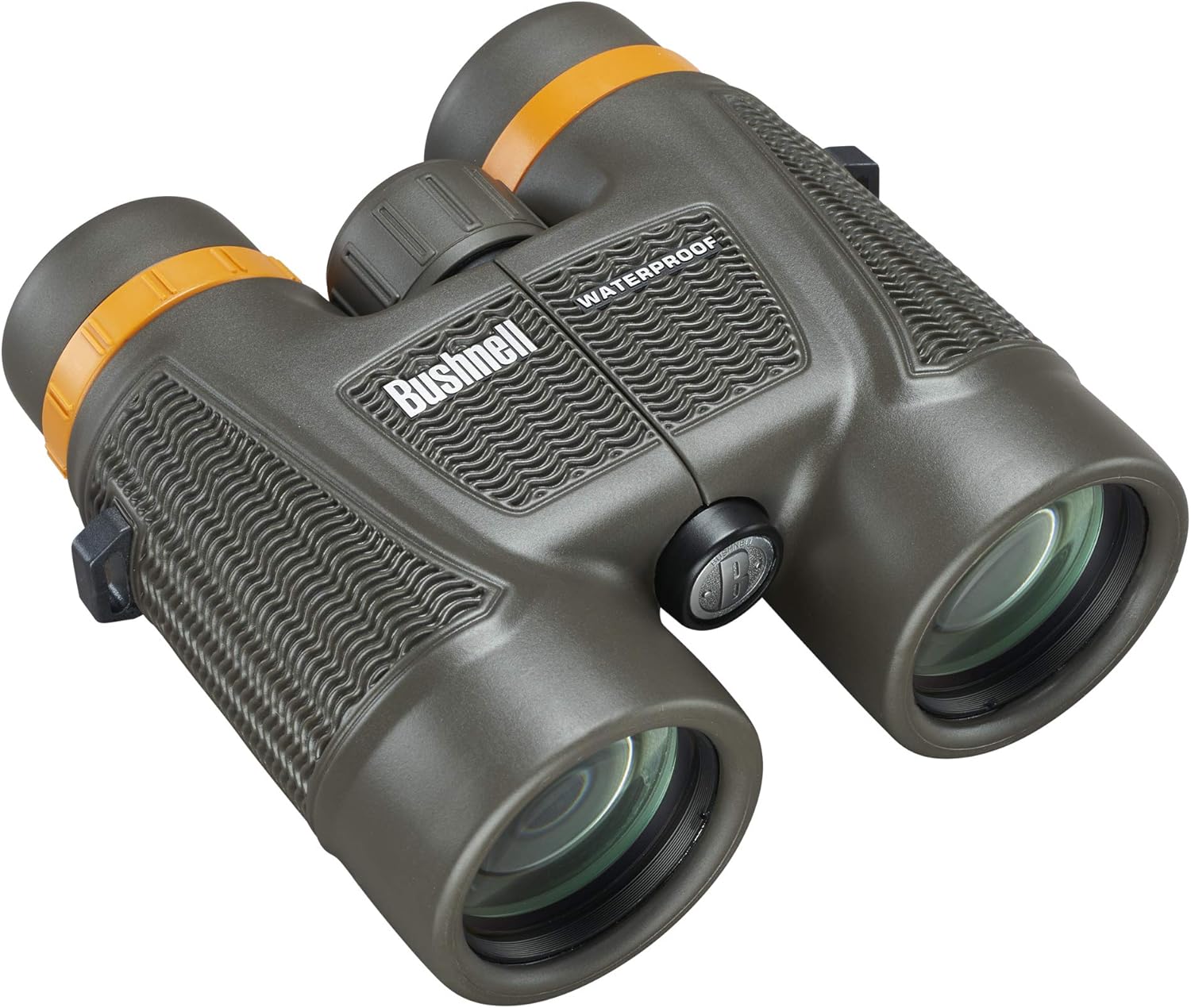



High 12x magnification power
Phone adapter and tripod included
BAK4 prisms for brightness
Waterproof construction
Large 42mm objective lenses
Compact design
Check Current PriceAt just $63, these 12×42 binoculars offer exceptional magnification power for budget-conscious birders. The 12x magnification brings distant subjects remarkably close, making them useful for specialized applications like raptor watching or observing waterfowl on large lakes.
The included phone adapter and tripod add significant value to the package, allowing for digiscoping opportunities and steady viewing during extended observation sessions. The BAK4 prisms and 42mm objective lenses provide reasonable light gathering for the price point.
However, the high magnification requires steady hands and proper technique for optimal results. Image shake becomes more pronounced at 12x, and the narrow 273-foot field of view can make initial bird location challenging. Build quality varies between units, reflecting the budget pricing.
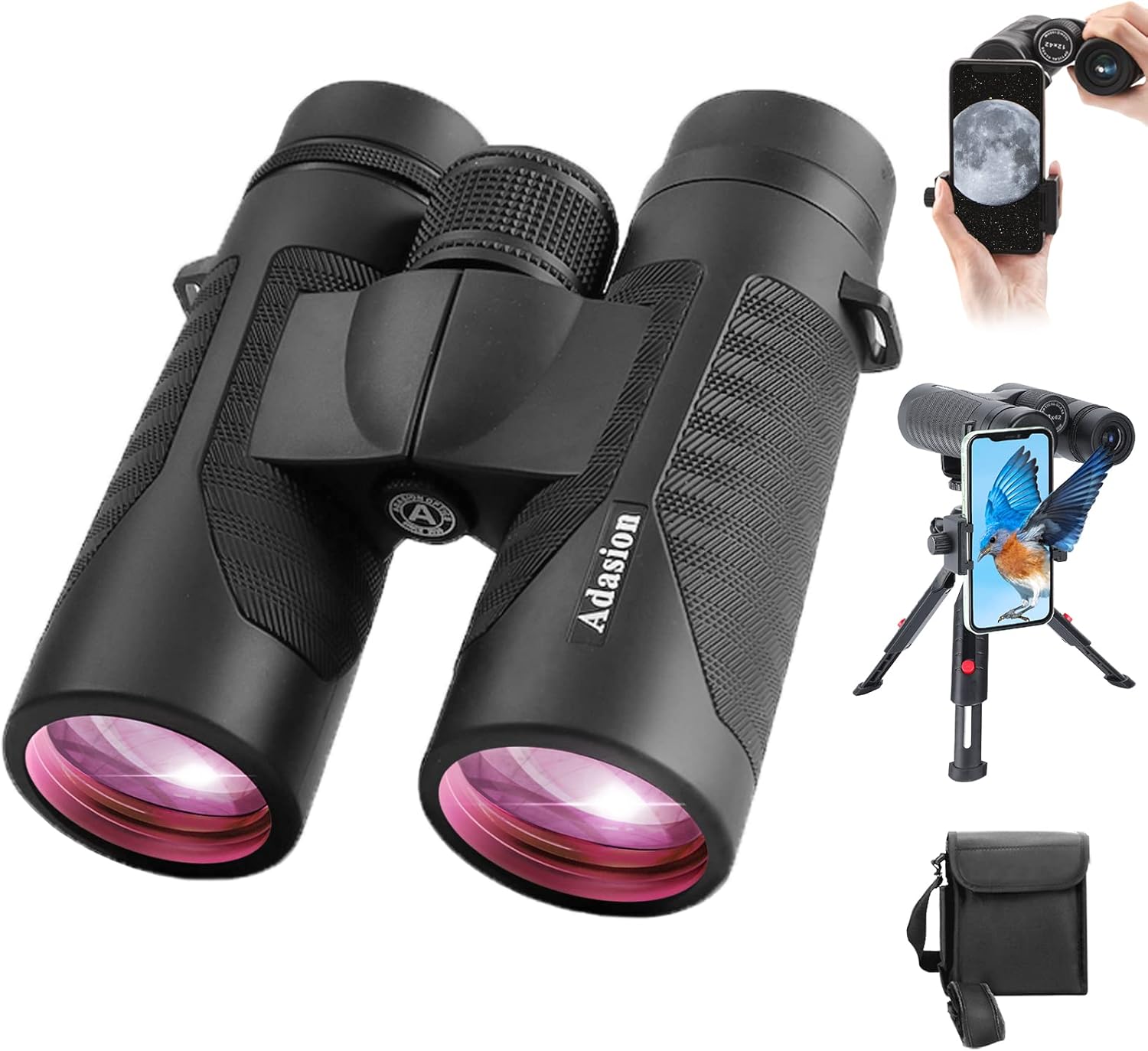



Ultra-compact and lightweight design
12x magnification in small package
Large eyepiece design
Waterproof construction
Easy focus wheel
Suitable for adults and kids
Check Current PriceThe Occer 12×25 at $36 represents the ultimate in portability, weighing just 0.69 pounds while delivering 12x magnification. These binoculars excel when space and weight are primary concerns, such as travel birding or situations where larger models would be impractical.
The compact design makes them particularly suitable for children or casual users who might be intimidated by larger binoculars. The easy focus wheel and adjustable interpupillary distance accommodate various users, while the affordable price makes them accessible for families or as backup optics.
However, the small 25mm objective lenses severely limit light-gathering ability, making these binoculars most effective in bright conditions. Low-light performance suffers significantly, and image quality reflects the budget pricing with some chromatic aberration and edge distortion visible.
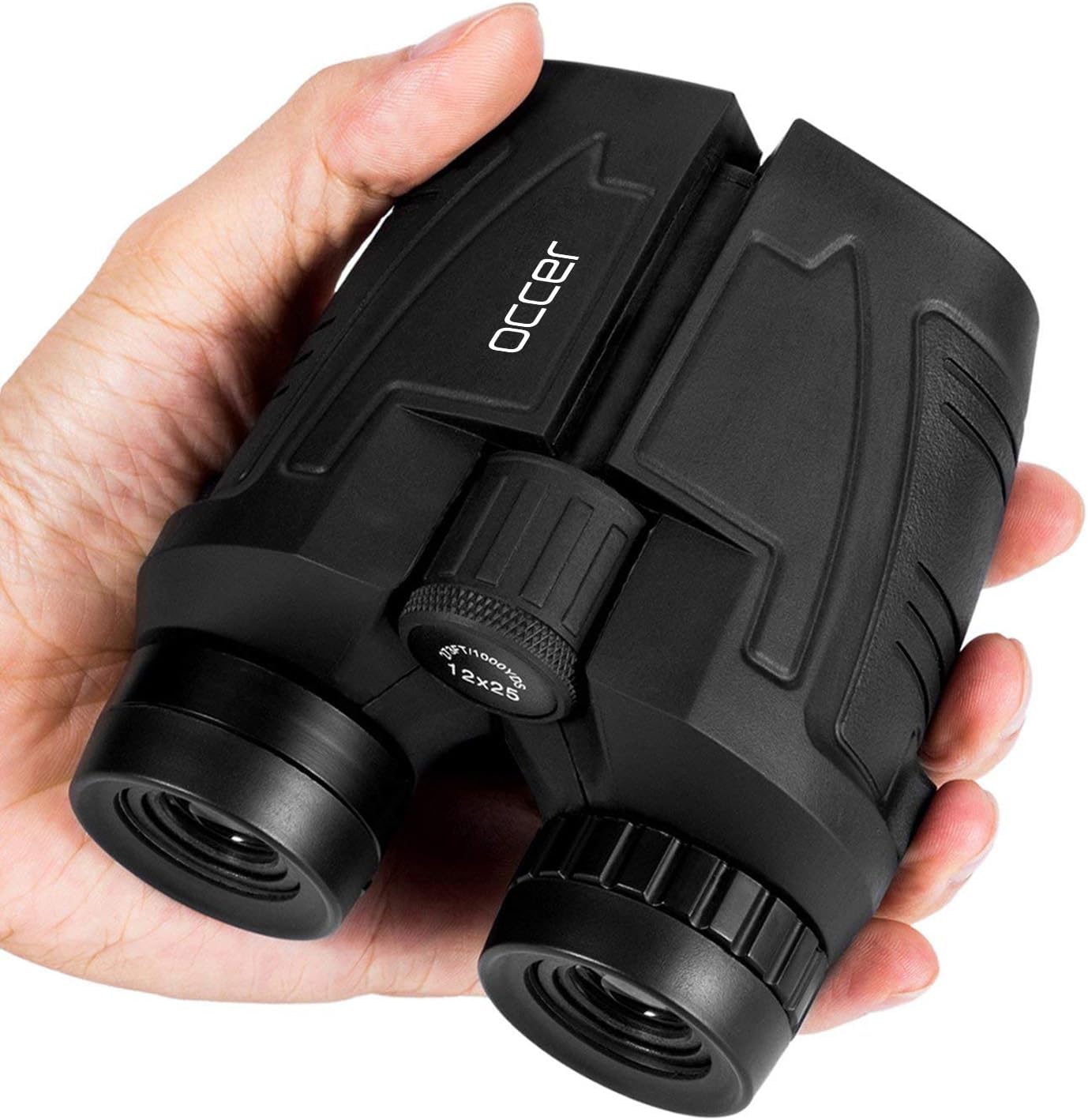



Ultra-lightweight at 0.6 pounds
10x magnification with good balance
Adjustable interpupillary distance
Compact palm-sized design
BAK4 prisms for 3D depth
Suitable for all ages
Check Current PriceAt just $25, the Hontry 10×25 provides an extremely affordable entry point into bird watching optics. While these binoculars make significant optical compromises, they offer reasonable 10x magnification in an ultra-lightweight package that weighs only 0.6 pounds.
These binoculars work best for casual birding in good lighting conditions or as starter optics for children learning to use binoculars. The compact size and light weight make them comfortable for extended use, while the affordable price removes barriers for families interested in exploring bird watching.
However, the lack of weatherproofing and basic optical quality limit their usefulness for serious birding. They’re best viewed as temporary stepping stones toward better optics rather than long-term solutions for dedicated birders.
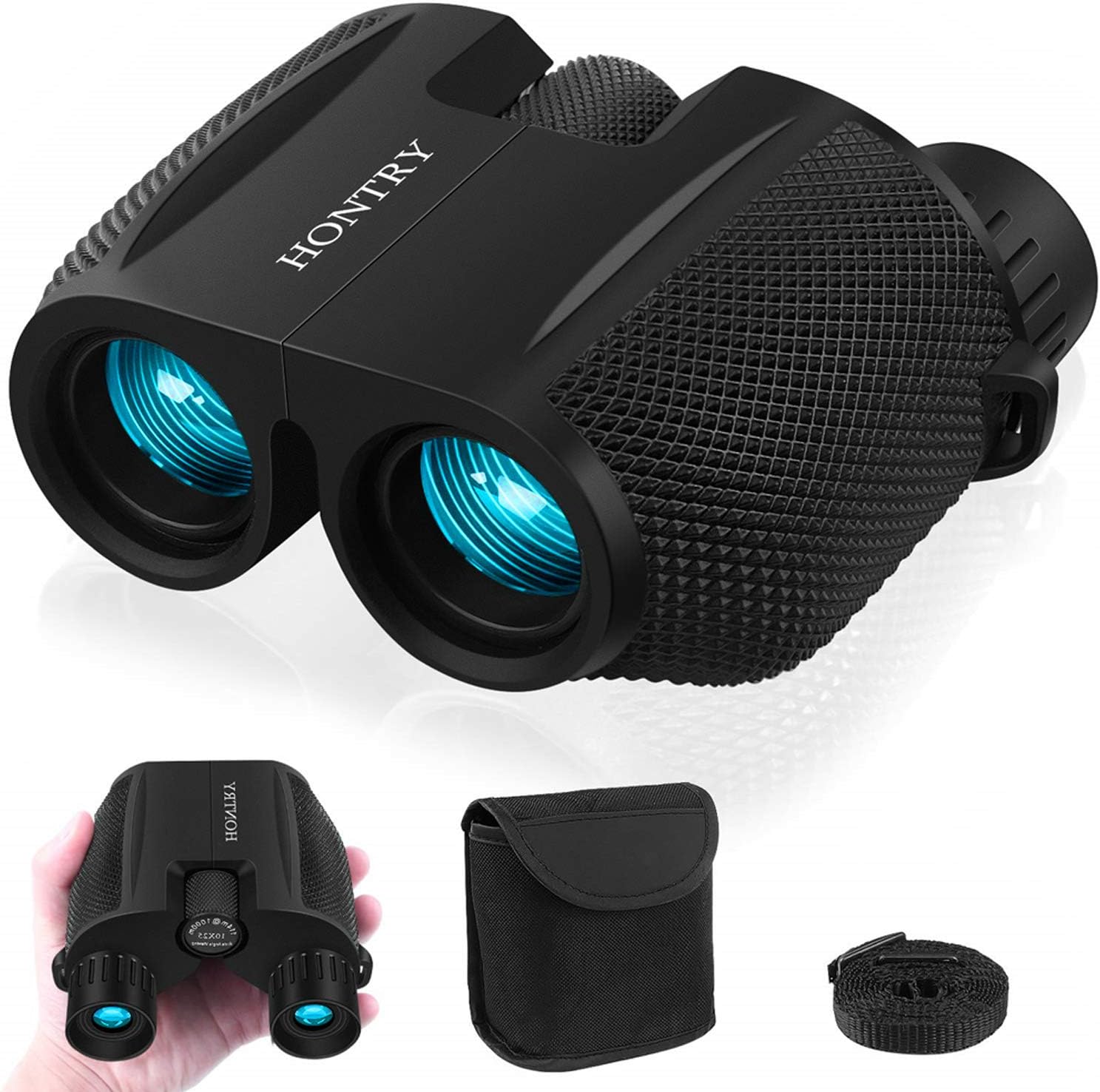

When shopping for birding binoculars, prioritize trying before buying whenever possible. Visit local camera shops or outdoor retailers that allow hands-on testing, as comfort and fit vary significantly between individuals. Pay attention to how the binoculars feel in your hands, how easily you can reach the focus wheel, and whether the eyecups accommodate your viewing preferences.
Consider your typical birding environments when making decisions. If you primarily bird in open habitats with good lighting, higher magnification models like 10×42 or even 12×50 configurations might serve you well. Conversely, if you frequently bird in dense forests or during low-light periods, prioritize models with larger objective lenses and wider fields of view.
Don’t overlook warranty and service support, especially for expensive models. Companies like Vortex, Leica, and Swarovski offer exceptional warranty coverage and repair services that can extend your binoculars’ useful life significantly. Factor these long-term costs into your purchasing decision, as premium service can justify higher initial prices.
Budget considerations should balance initial cost with long-term value. While it’s tempting to start with the cheapest option, many birders find themselves upgrading within a year or two. Consider investing in quality optics that will serve you for decades rather than repeatedly replacing budget models that disappoint.
Proper maintenance extends binocular life and maintains optical performance. Clean lenses only when necessary, using lens cleaning solutions and microfiber cloths designed for optical surfaces. Avoid paper towels or clothing, which can scratch delicate coatings.
Store binoculars in a dry environment when possible, and use silica gel packets in carrying cases if you frequently encounter humid conditions. Even waterproof models benefit from proper storage, as extreme temperature cycling can stress seals and internal components over time.
Annual professional cleaning and adjustment can keep premium binoculars performing at their best. Many manufacturers offer comprehensive service programs that include cleaning, collimation adjustment, and preventive maintenance for reasonable fees.
What magnification is best for bird watching?
8x magnification is the most popular choice among birders because it provides good detail while maintaining image stability and wide field of view. 10x offers more detail but requires steadier hands, while 7x provides the steadiest images and widest fields of view.
Are compact binoculars suitable for serious bird watching?
Compact binoculars excel for travel and portability but compromise light-gathering ability. They work well for daytime birding in good lighting but struggle during dawn, dusk, or overcast conditions when many birds are most active.
How much should I spend on birding binoculars?
Quality birding binoculars start around $150-200 for models that will satisfy most users long-term. Premium models in the $300-500 range offer superior optics and durability, while ultra-premium options above $1,000 provide incremental improvements for demanding users.
Do I need waterproof binoculars for bird watching?
Waterproofing is highly recommended for any serious bird watching. Weather conditions change quickly in the field, and even light rain or morning dew can fog internal elements in non-sealed binoculars, ruining viewing opportunities.
What’s the difference between roof and porro prisms?
Roof prisms create more compact, streamlined designs but typically cost more for equivalent optical quality. Porro prisms often provide wider fields of view and more three-dimensional images at lower prices but result in bulkier binoculars.
How important are optical coatings?
Optical coatings dramatically affect image brightness and contrast. Fully multi-coated optics transmit the most light and provide the best image quality, while uncoated or simply coated models appear dimmer and less sharp in comparison.
Can I use reading glasses with binoculars?
Yes, but you’ll need adequate eye relief (15mm or more) to see the full field of view while wearing glasses. Look for binoculars with adjustable eyecups that can be twisted down to accommodate eyewear.
What accessories do I need with binoculars?
A comfortable neck strap or harness system is essential for extended use. Lens caps protect the optics during transport, while a quality carrying case prevents damage. Some birders also appreciate lens cleaning supplies and rain guards for the eyepieces.
For most birders, the Vortex Crossfire HD 8×42 at $139 represents the best balance of performance, durability, and value. It provides professional-grade optics with a lifetime warranty at a price that won’t break the budget, making it an excellent long-term investment for serious bird watching.
If budget allows, the Vortex Diamondback HD 8×42 at $239 takes optical performance to the next level with HD glass elements and premium coatings. The included GlassPak harness system and ArmorTek lens protection make this model particularly suitable for frequent field use.
Budget-conscious birders should consider the Celestron Nature DX 8×42 at $169, which offers exceptional field of view and solid optical performance. While not quite matching Vortex’s build quality, it provides excellent value for recreational birders.
Remember that the best binoculars are the ones you’ll actually use. Consider your typical birding habits, physical requirements, and budget constraints when making your choice. Quality optics will enhance your birding experience for decades, making them one of the most valuable investments you can make as a bird enthusiast.


